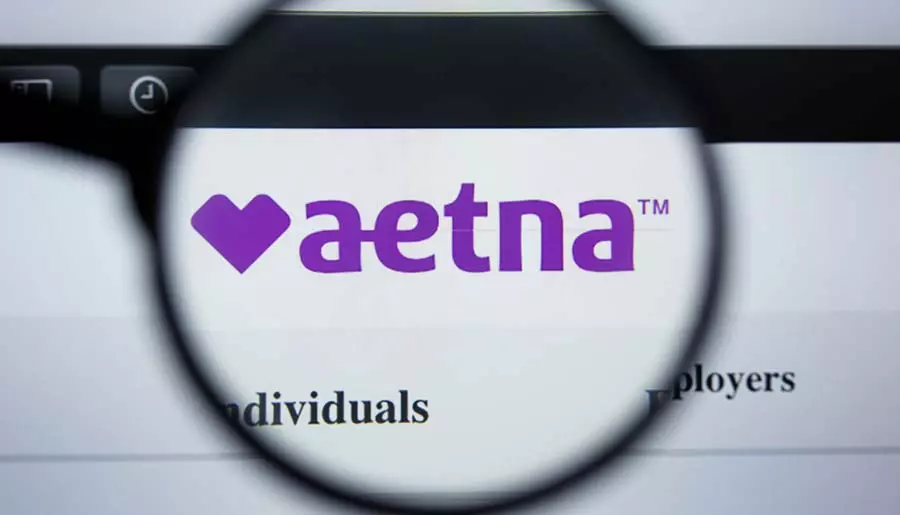Aetna Drug Rehab
Call Now To Get On The Road To Recovery.
Addiction Treatment that
Just Works
Individualized treatment programs delivered in a comfortable, relaxed setting promote healing in your recovery journey.
*As required by law, all communications with Resurgence Texas are HIPAA Compliant and 100% Confidential
Drug and Alcohol Rehab Coverage With Aetna Insurance
Over 40 million Americans are insured by Aetna, making it one of the country’s major health insurance carriers. Among this population are many people who are also dealing with substance abuse problems.
You or your loved one can get help for substance abuse through Aetna drug rehab coverage with little to no out-of-pocket expense if you or they have health insurance that covers it. The company provides a variety of insurance plans, including ones that comply with the Affordable Care Act and pay for mental and behavioral health care.
Substance abuse and other co-occurring mental health conditions including depression, anxiety, and others, can be treated more easily with the help of these plans.
How Comprehensive Is My Aetna Insurance Plan?
Aetna’s coverage for substance abuse treatment includes, but is not limited to the following:
- Detox Addiction Treatment
- Medication Assisted Therapy (MAT)
- Partial-Hospitalization
- Intensive Outpatient Programs
- Residential Treatment
Your out-of-pocket payments for treatment will likely be greatly reduced if you have Aetna insurance for substance abuse treatment.
Locate an Addiction Treatment Facility Accepting Aetna Insurance Today

Even after consulting with Aetna insurance, figuring out your coverage possibilities for substance abuse treatment might be challenging. If you or a loved one are having trouble deciding which substance abuse treatment program might be best, our representatives are here to help.
Get in touch with us right away, and we’ll do our best to verify your Aetna insurance and tell you exactly what your insurance coverage pays for. You shouldn’t have to figure out how to pay for therapy without help.
There are numerous complicated substance abuse issues in Texas. Meth, prescription opioids, heroin, cocaine, alcohol, and other drugs are claiming victims in cities like Austin and Dallas, as well as in more rural locations like El Paso and Amarillo. According to the CDC, the already startling rate of overdose deaths saw a 30% increase during the COVID-19 Pandemic. There are literally hundreds of substance abuse treatment facilities in Texas, so you or a loved one can find help in the state.
Where Can I Find the Right Addiction Treatment Program?
You should tailor your choice of addiction treatment program to your specific needs, as well as your lifestyle, financial situation, and previous experience with addiction treatment. In Texas, clients can choose from a wide variety of alcohol and drug addiction treatment facilities, including but not limited to:
- Residential Addiction Treatment
- Partial Hospitalization Programs (PHPs)
- Intensive Outpatient Treatment (IOT)
- Detox
- Medication Assisted Treatment
Use Resurgence Texas To Make Your Insurance Company Issues Easy
If you’d rather simplify your search, you may always reach out to Resurgence Texas. We accept most Aetna insurance company policies and provide all the following services to help you achieve recovery:
Medical Detox for Drug and Alcohol Addiction
Detoxification is an integral part of every successful alcohol or drug treatment program (detox). Detox assists clients in controlling their withdrawal symptoms so they can stay sober long enough to enter and successfully complete behavioral rehabilitation.
In order to ease severe withdrawal symptoms and acquire the care you need in the event of a medical emergency, it is crucial that detox be delivered by an experienced and competent medical team (doctors and nurses).
Never attempt a rapid or self-detox, as this increases the likelihood of recurrence and poses serious health hazards in the long run. Depending on the severity of withdrawal and addiction, medical detox can last anywhere from three days to a week. Your insurance company should have no questions about the need for detox as part of your treatment plan.
What Occurs During the Process of Medical Detoxification?
Doctors will closely monitor you or your loved one as you go through a medical detox and withdrawal treatment to provide the most effective alleviation from withdrawal symptoms, which can include but are not limited to:
- High temperature
- Flu-like symptoms
- Discomfort and Pain
- Stomach discomfort
- Persistent SweatingopShaking or tremors
- Pain in the Head or Neck
- Hallucinations
- Disorientation and Confusion
Instead of taking chances by trying to weather the storm alone at home with nobody monitoring your symptoms, medical detox includes a detailed patient intake form that captures all of your medical conditions that can help shape your care. Aetna insurance coverage pays for detox – you might as well take advantage of this.
Insurance Coverage for Medication Assisted Treatment

Opioid and alcohol use disorder treatment often includes the use of medication. The use and integration of some FDA-approved drugs to alleviate cravings and withdrawal symptoms is an approved aspect of many patients’ opioid treatment programs (OTPs).
Medication-assisted treatment, or MAT, is considered the “gold standard” for addiction care because of how effective it is when combined with other methods. According to the National Institute on Drug Abuse (NIDA), MAT was responsible for a nearly 40% decrease in opioid overdose deaths in a widely-cited study. More and more facilities are including MAT as an option for patients. Aetna insurance coverage also provides funding for MAT.
What Does MAT Consist Of?
Your insurance providers will likely require the answer to this question. In some cases, certain insurance providers require prior authorization forms. This is a paper filled out by a physician at the treatment center that explains what medications are used and why they’re necessary. A quick fax to your insurance provider should handle the situation. Medication-assisted therapy currently makes use of the following medications:
- Suboxone® (Buprenorphine and Naloxone) can be taken orally (in the form of a pill) or sublingually (under the tongue) in film form at intervals and doses determined by your doctor based on your individual needs. Buprenorphine alleviates cravings and withdrawal symptoms by providing a steady stream of opioids, while naloxone prevents the high from developing. Zubsolv® and Bunavail® are two brand names for buprenorphine and naloxone, respectively.
- Opioid cravings can be alleviated with the help of an injectable medication called Sublocade® (Extended-Release Buprenorphine). Approximately one month of protection from a single injection (28 to 30 days). There’s more info in the package: The recommended time between Sublocade administrations is 26 days.
- As a monthly injection, Vivitrol® (Monthly Injectable Naltrexone) is the brand name for the drug naltrexone. It has been proven effective in treating alcohol and drug addiction. Vivitrol is effective because it prevents the attachment of endorphins, which are responsible for the pleasurable effects of drugs, to brain cells.
While the above medications can be used without medical supervision, methadone is also utilized in MAT. In every case, most insurance providers cover these treatment options.
Addiction Treatment that
Just Works
Individualized treatment programs delivered in a comfortable, relaxed setting promote healing in your recovery journey.
Your Insurance Provider Likely Covers A Portion of Inpatient Treatment
Inpatient treatment for substance use disorders is receiving assistance in a residential treatment center, where clients can heal in an undistracted setting, apart from any triggers or reminders of their substance addiction.
You or your loved one may be able to get over the worst of the withdrawal symptoms with the support of onsite medical detoxification or a referral to a nearby hospital. They also incorporate intensive behavioral recovery to help you overcome your addiction from the inside out. Typically, the length of time spent in inpatient care ranges from a few weeks up to 30, 60, or 90 days.
Should I Consider an Inpatient Drug and Alcohol Treatment Facility?

You or a loved one may benefit greatly from inpatient alcohol or drug addiction therapy if you’ve been having major problems with substance abuse or addiction. Primary care physician visits before treatment should include asking your doctor whether they believe you’re a good candidate for treatment.
Inpatient alcohol and drug treatment programs give clients the opportunity to live at the institution where they are receiving treatment so that they can focus entirely on their recovery. It’s a place where specialists like physicians, nurses, therapists, and support staff can help you out without any interruptions, and you can focus on getting better. Depending on the client’s continued care needs and progress, inpatient services may be required for longer than the standard 14-30 days.
Individuals who:
- Have relapsed after receiving outpatient or intensive outpatient (IOP) care
- Have Aetna cover mental health services
- Have health problems that are directly related to their substance abuse and need continuing care
- Get trapped in toxic situations and need help changing their situation
Most people who seek help for substance abuse do so through outpatient programs. It’s typically the most cost-effective option, and it allows individuals to obtain treatment for their substance abuse problems without sacrificing other elements of their lives.
Group therapy, individual counseling, supplementary occupational treatments, and other forms of treatment are sometimes incorporated into outpatient programs, which are often delivered over the course of several weeks. Our professionals are here to help you choose the outpatient substance use disorder treatment center that best fits your needs.
How Do I Know If I Need Inpatient or Outpatient Treatment for Drugs or Alcohol?
Those who have only recently seen the negative effects of alcohol and drug abuse, as well as those who need intensive treatment in a setting that allows them a high degree of solitude, can all benefit from outpatient alcohol and drug rehab.
Aetna substance abuse treatment coverage typically provides for these services without exception. Many outpatient clinics coordinate with local medical centers to provide detox and withdrawal care by qualified physicians and nurses, so they can also serve as a stepping-stone to longer-term residential treatment.
Partial hospitalization programs are often referred to by their acronym, PHP. Sober living is an alternative for those undergoing this type of rehabilitation, which combines the convenience of traditional outpatient care with the intensity of inpatient recovery. The facility provides both intensive behavioral rehabilitations to address the underlying causes of drug and alcohol addiction.
What is Included in PHP Treatment?

PHP treatment typically lasts from six to eight weeks. Five times a week, clients will spend anything from four to six hours in therapy. All sorts of supplementary therapies and counseling methods are used in conjunction with traditional talk therapy during sessions. These treatments may include cognitive-behavioral therapy (CBT), dialectical-behavioral therapy (DBT), and others, depending on the type of facility you select.
These approaches aim to help you or a loved one recover by addressing the underlying psychological causes of addiction. As a result of their assistance, you will be able to form the defense mechanisms essential for avoiding relapse when faced with temptation.
Cognitive Behavioral Therapy
Alcohol and drug treatment centers frequently employ cognitive behavioral therapy (CBT). The goal is to help patients change the way they look at challenging events so they may exercise more self-control in how they respond. Individualized situational counseling is at the heart of cognitive behavioral therapy, which can be provided either on an inpatient or outpatient basis in a drug treatment facility. ‘The professional therapist assigned to you or your loved one will keep tabs on how things are going and adjust the treatment strategy as necessary.
DBT Approaches
Recovery from substance abuse with dialectical behavioral therapy (DBT) is a tried and true method. You or your loved one will be better prepared for a full recovery with the skills learned in this program, including mindfulness, distress tolerance, interpersonal effectiveness, and emotion control.
Reframing potentially stressful or unfavorable events into more manageable ones is how this technique works. Relapse can be avoided with the help of dialectical behavioral therapy by preparing yourself or a loved one for stressful situations.
Get the Long-Term Help You Need at Resurgence Texas
If you have Aetna insurance, you can get the long-term help you need at Resurgence Texas. We accept most forms of Aetna substance abuse coverage for our clients and will help you navigate the process of prior authorization, and even speak directly to your provider if needed.
Our main goal is your success, and if this means helping you by going to bat for you and recommending the treatment you need to your agent, that’s what we’ll do. Otherwise, we may have alternative options or can help you locate resources to help you cover additional expenses. If you have a health savings account, this could provide the relief you need to cover out-of-pocket situations.
For more information and a confidential discussion of options, contact a member of our Admissions team today!
Addiction Treatment that
Just Works
Individualized treatment programs delivered in a comfortable, relaxed setting promote healing in your recovery journey.
